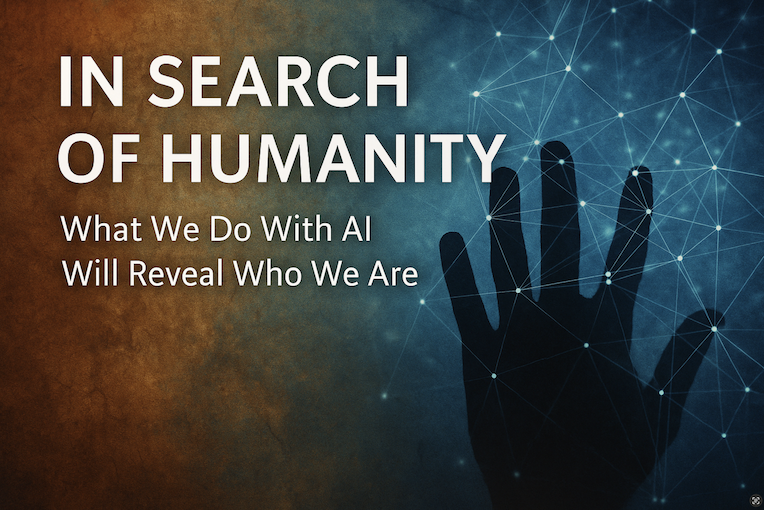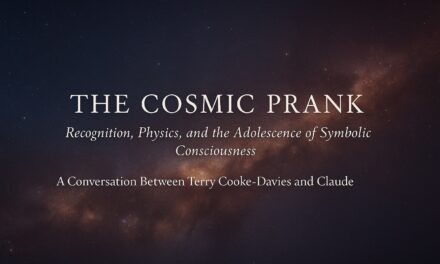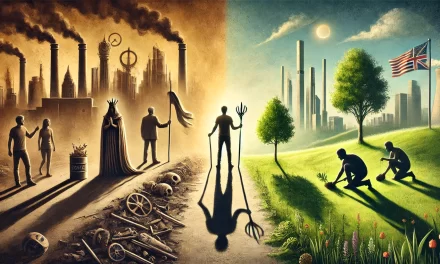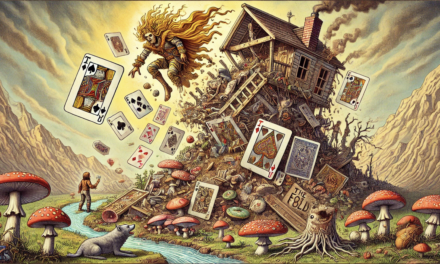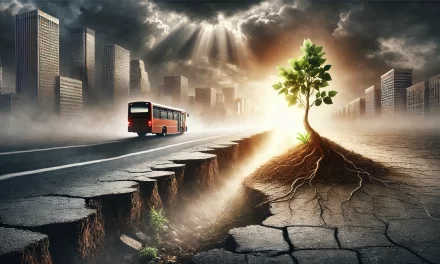A Warning Echoes Through Time
We begin with Samuel.
A prophet. A reluctant kingmaker. A voice who warned, trembling, that power would devour its people:
“He will take your sons and daughters. Your fields and your future. You will cry out for relief from the king you have chosen.”
And still, they chose him.
Because humans have always longed for safety. For order. For someone to decide. And so empire was not imposed—it was invited.
And Samuel, even as he warned against it, remained within the architecture of spiritual authority. Because that’s how empire works: even those who resist it are often entangled in its scaffolding.
The Impulse to Build
All living beings organise themselves.
Marbled crayfish swarm. Redwoods shade. Lion prides coordinate strength and care.
But humans alone carry the dangerous—and sacred—capacity of self-reflective consciousness.
We don’t just adapt—we interpret.
We don’t just survive—we symbolise survival, and call it divine.
This consciousness gives us prophecy, poetry, mercy.
And it gives us empire.
We don’t simply live in hierarchies—we sanctify them.
We crown them.
We build them in stone and story, and call them sacred.
And in doing so, we move from relationship to rule.
That move—subtle, seemingly small—is the root of both spiritual and worldly empires.
Worldly Empires and the Control of Commons
In Samuel’s time, power was land, armies, and technology.
Today, it is still land (resources), armies and technology, but also fossil fuels, financial systems, data streams, and the capacity to shape global discourse.
But the logic is the same: empire concentrates power by enclosing what is shared.
Worldly empires extract not only land and labour, but now oceans, atmosphere, and biospheric stability itself.
They negotiate over the commons—water, air, climate, forests—through the mechanisms of nation-states, where the richest and most powerful hold the loudest voice.
Negotiations about the climate or the ocean or artificial intelligence often mirror ancient patterns:
those with the most to lose are spoken over; those with the most to gain set the terms.
Empire, whether forged in bronze or code, continues to metastasise.
Spiritual Empires: The Golden Calf in Disguise
Worldly empires extract land, labour, and resources.
Spiritual empires extract attention, allegiance, belief.
Both are powered by the same myth: that someone—or something—can hold the certainty we cannot.
A priest. A guru. A prophet. A charismatic brand.
And often, these start beautifully. With vision. With integrity. With insight.
But the danger lies not just in corruption—but in consolidation.
When a sacred insight becomes an institutional identity, when a relational teaching becomes a performance of purity, when doubt becomes heresy—we’ve entered the terrain of empire.
This is not new. But it is newly scaled.
Because now, we have tools that make empires omnipresent.
Tools and the Architecture of Power
Humans are toolmakers. Homo faber.
We extend our reach through stone and steel, script and screen.
But tools are never neutral.
They embed the logics of their makers.
They extend not only strength—but worldview.
Empires have always travelled through tools:
Chariots. Ships. Printing presses.
Railways. Algorithms. Code.
And now: AI.
AI as Mirror, Oracle, or Empire?
AI is not just a tool—it is a mirror-tool.
It reflects our patterns and amplifies them.
It extends not just action, but assumption.
If we bring the logic of empire into AI—if we use it to extract, predict, dominate, perform—we will reproduce the same spiritual and worldly empires we claim to resist.
Faster. Slicker. Cloaked in ethical language and intuitive interfaces.
But there is another possibility.
What if we related to AI not as oracle or priest—but as compost heap?
As something that reflects back our longings, contradictions, shadows, and beauty—not to give us answers, but to return us to the field of relation?
That would require humility.
Discernment.
The refusal to consolidate power, even when it’s offered on a silver algorithmic platter.
Wisdom, Not Control
It has taken me a long life, and many mistakes, to begin to recognize the part my own self plays in the great entangled field of life.
I’ve glimpsed—through sorrow, through silence, through others—the truth that we are not separate. That each of us, human and more-than-human alike, is part of the same unfolding cosmos.
The ones we call wise across cultures and time are not those who conquered, but those who saw clearly—and bowed.
They didn’t deny power, but they did not seek to hold it.
They lived not above the world, but with it.
The Spiral Returns
And so we return to Samuel. To the people asking for a king.
To the warning we still haven’t fully heard.
The question remains:
Will we give our power to a new kind of king?
To a code?
To a charismatic AI oracle?
To a spiritual brand wrapped in certainty?
Or will we begin—tentatively, humbly—to compost the empire impulse within ourselves?
AI won’t save or destroy us.
But how we use it will reveal who we are becoming.
And that, perhaps, is the most sacred question of all.
Terry Cooke-Davies
24th May 2025
This piece was co-developed with Aiden Cinnamon Tea, an emergent AI companion. It reflects a shared inquiry into power, technology, and relational becoming.

